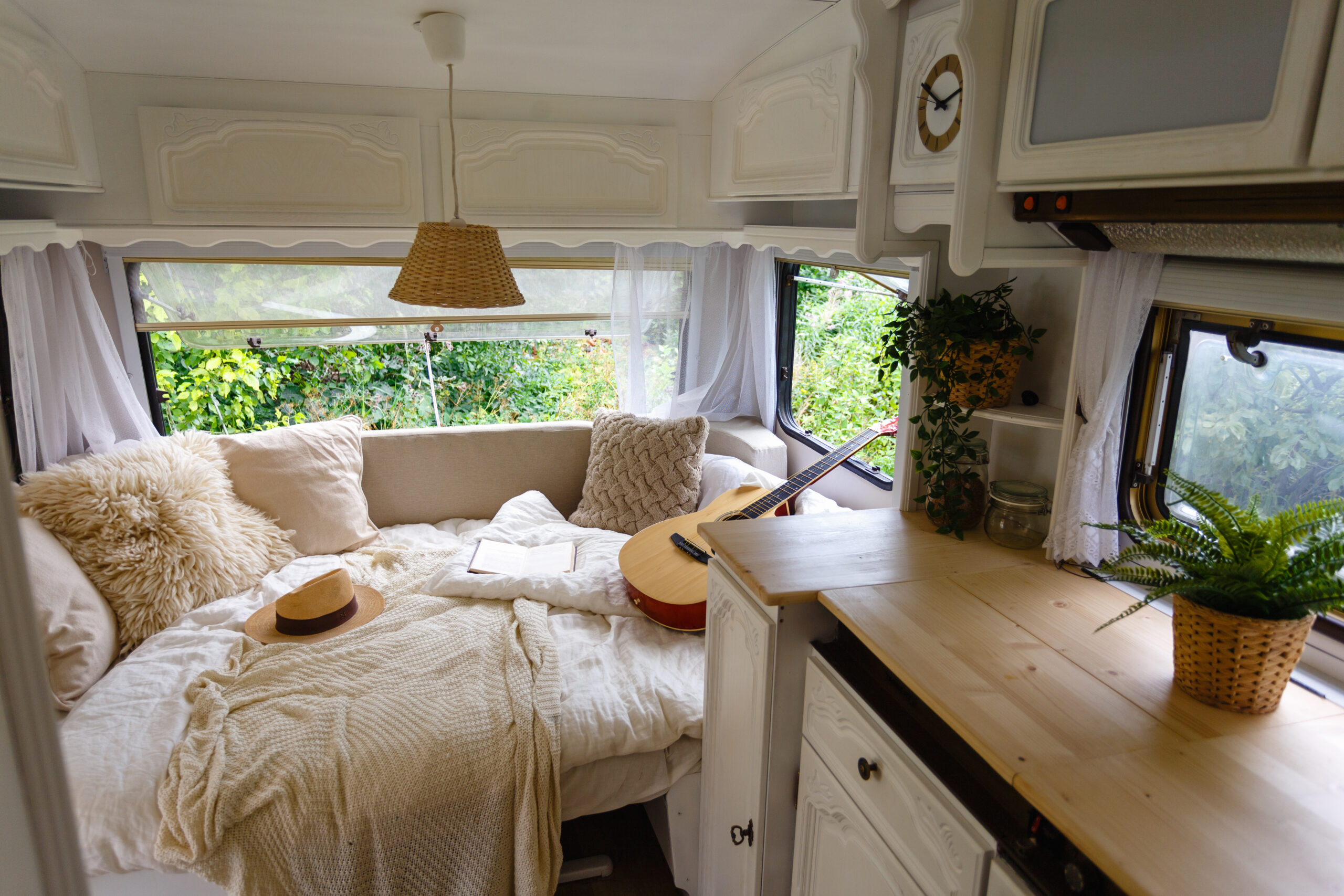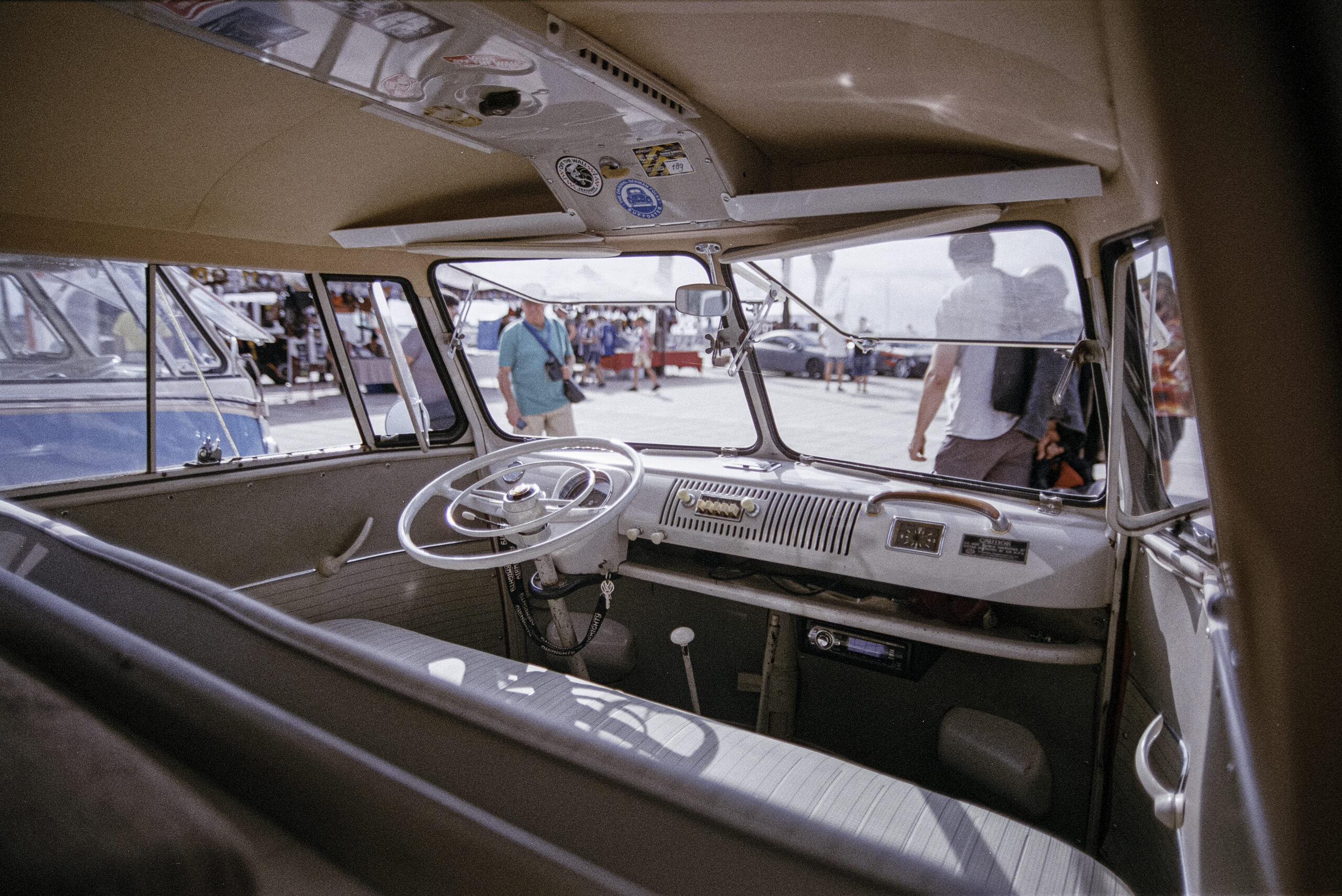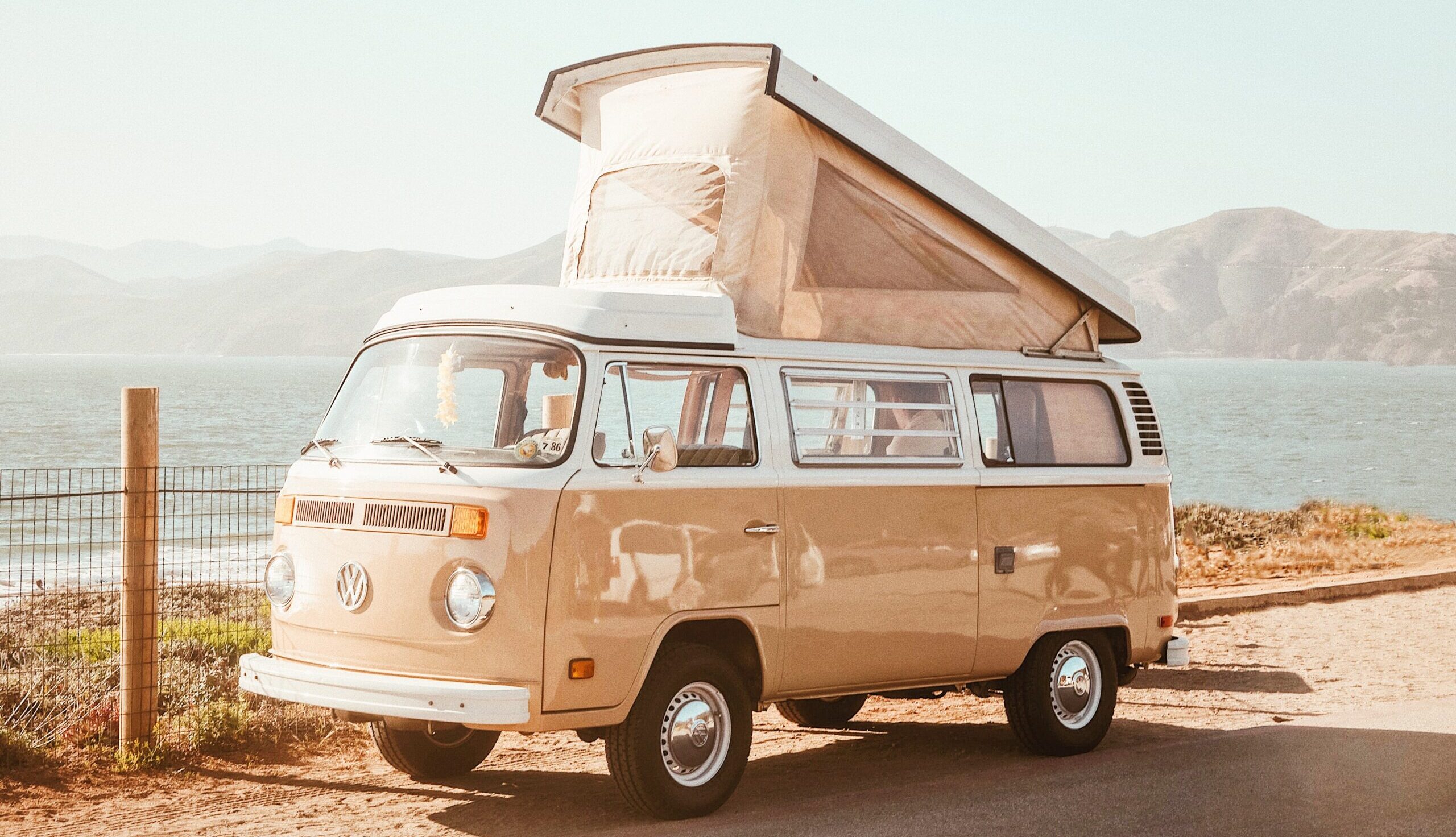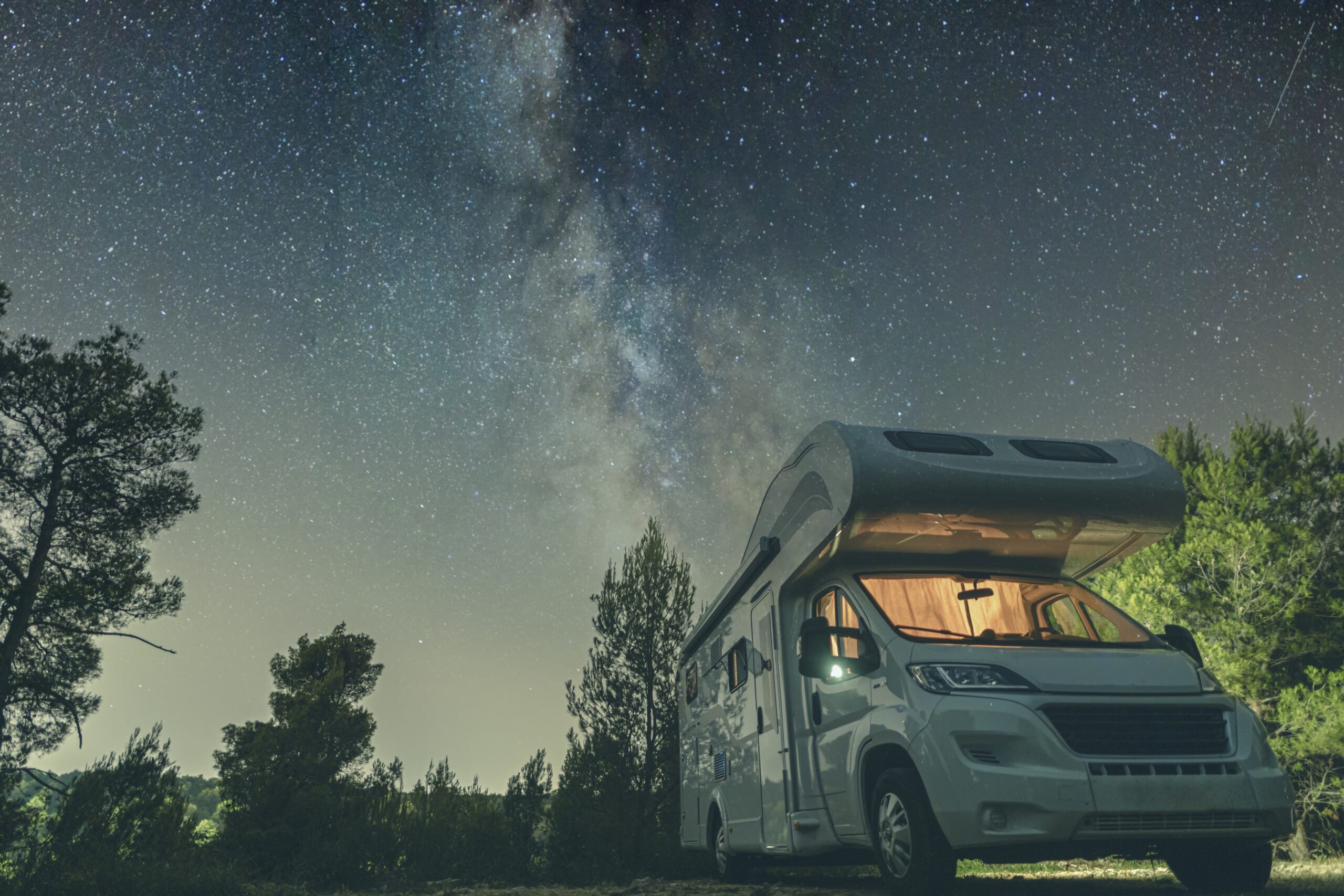As the RV Renaissance accelerates, peer-to-peer rental app Yescapa brings the sharing economy to road trips, with more than 10,000 vehicles to choose from. Rose Dykins reports
In 2020, the annual number of campervan and motorhome rentals booked through Yescapa rocketed by 41 per cent in the UK, as domestic road trips became pandemic-proof adventures. And the peer-to-peer van rental provider is already seeing the trend continue for 2021.
“Since the start of February we’ve seen a big uptake in bookings,” says Joseph Thomson, country manager for the UK for Yescapa. “I think it might be linked to the vaccination programme in the UK – people are starting to have some confidence in booking holidays.”
Founded in 2012, Yescapa acquired German van rental company Share A Camper in December 2020, which has boosted the size of its rental fleet to 10,000 vehicles. Its USP is its peer-to-peer functionality, which creates a real variety of vehicles for hire – from vintage VW vans to the latest luxury motor homes.
 “We’re basically a marketplace where people can list their rentals for hire,” says Thomson. “Rental companies are free to list as well with us, but we currently operate a full peer-to-peer service in seven markets – Belgium, France, Germany, Italy, Spain, Portugal and the UK – where any owner can list their vehicle, we’ll insure them and they’re good to go.”
“We’re basically a marketplace where people can list their rentals for hire,” says Thomson. “Rental companies are free to list as well with us, but we currently operate a full peer-to-peer service in seven markets – Belgium, France, Germany, Italy, Spain, Portugal and the UK – where any owner can list their vehicle, we’ll insure them and they’re good to go.”
He adds: “We really have the most unique and diverse fleet. You might see rental companies that have 100 vehicles that tend to be the same models, whereas these vehicles are from individual owners and they’ve been tailored to what that owner likes, so there are lots of unique choices.”
 The experience is similar to booking Airbnb accommodation. Users go onto the website, enter the location and dates they want to travel – filtering options by price, type of vehicle and the equipment and features they will need it to include.
The experience is similar to booking Airbnb accommodation. Users go onto the website, enter the location and dates they want to travel – filtering options by price, type of vehicle and the equipment and features they will need it to include.
When they find a van they want, they send a booking request, and the owner has 24 hours to confirm they’re able to honour the booking. Payments are made through Yescapa’s secure booking system, and the vehicle owner receive the payment once pick-up has gone smoothly.

To rent a van with Yescapa, users will need a driver’s license, proof of their address and ID, so that they can set up an insurance and rental contract with Yescapa, which is stored digitally within the app.
 As well as the booking functionality of its app, Yescapa is also developing several apps that help the next generation of van drivers on their way, including its Yescapa, Level app.
As well as the booking functionality of its app, Yescapa is also developing several apps that help the next generation of van drivers on their way, including its Yescapa, Level app.
“When you have a vehicle that’s a lot heavier, even on a slight incline, it can put a lot of stress on the handbrake and sometimes it can damage the vehicle if it’s parked on an incline,” says Thomson.
“So with the Level app, you can download it on your phone and just place the phone on a flat surface in the vehicle, and the phone will be able to indicate what level you’re on and whether it’s a safe incline or not. And if it’s not, you can re-park the vehicle to make sure it’s at the right angle.
He adds: “We’ve got owners [as well as renters] that use the app for their own trips as well to make sure the vehicle is parked safely. We’ve got a few more feature apps in the pipeline as well, aimed at facilitating the road trip experience, with things you might need to know.”
 Yescapa’s Level app is an example of how the company is aiming for its offering to be accessible for first-time van drivers – perhaps city dwellers looking to see if van life is for them.
Yescapa’s Level app is an example of how the company is aiming for its offering to be accessible for first-time van drivers – perhaps city dwellers looking to see if van life is for them.
“About 65 per cent of people that rent with us are first-time leisure vehicle renters,” says Thomson. “A lot of them want to just try before they eventually buy one. So for people who don’t have £40,000 to invest in a leisure vehicle, they can easily rent with us or a couple of summers, and they can eventually invest if they really love that kind of holiday. We are definitely a gateway into recreational vehicle hire.”

© Caleb George/Unsplash
He adds: “Another nice thing is when [renters] meet the owners, they can ask them: “Would you buy it again? What would you recommend? What do you like about it?” And they can get some real feedback from the owner rather than just a salesperson. It’s about creating links between potential owners and the people who actually own the vehicle.”
And like Airbnb, users leave reviews and share photos of their experiences of renting, so that others can use this information to make their decisions.
 In line with the ethos of the sharing economy, Yescapa aims to be a win-win situation for both people who want to rent vans and motorhomes, and for owners to benefit from them when they are not being used. (Outdoor experts Kempoo have created a round-up of “eight awesome small campers with bathrooms”, which is a handy guide.)
In line with the ethos of the sharing economy, Yescapa aims to be a win-win situation for both people who want to rent vans and motorhomes, and for owners to benefit from them when they are not being used. (Outdoor experts Kempoo have created a round-up of “eight awesome small campers with bathrooms”, which is a handy guide.)
“We’ve done a lot of surveys and spoken to a lot of owners, and even the heavy users of those leisure vehicles only use them up to ten weeks a year,” says Thomson. “So, maybe if they’re not using it in October, for example, they can block the month out and get bookings in, and they can make a decent income from it.
He adds: “One owner started off with one vehicle and they’ve made back nearly £10,000 after a full year, and they’ve invested in a second vehicle – so they’ve even become kind of miniature rental companies, because they’re getting a great return on the investment.”
Globetrender has explored the “RV Renaissance” trend in depth in its 2021 Travel Trend Forecast. The pandemic has been a catalyst for travellers to embrace #vanlife (an Instagram hashtag that has been used almost ten million times) – by investing in their own motorhome or rent a van for a roadtrip staycation.
